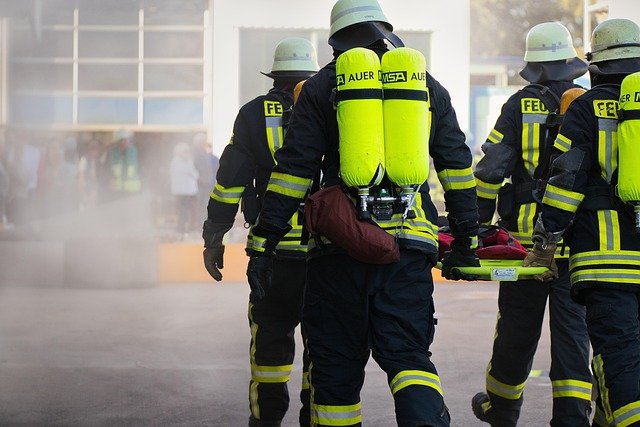Understanding Entry-Level Roles in Commercial Sanitation
The commercial waste industry offers diverse career opportunities for individuals seeking stable employment with room for growth. From collection services to recycling operations, entry-level positions provide valuable experience in an essential sector that supports environmental sustainability and public health. Understanding the various roles, requirements, and pathways within this field can help job seekers identify positions that align with their skills and career goals.

The commercial waste management sector represents a vital component of modern infrastructure, employing thousands of workers across collection, processing, and recycling operations. Entry-level roles in this industry offer competitive compensation, comprehensive benefits, and opportunities for advancement without requiring extensive prior experience or specialized education. This guide explores the fundamental positions that exist within the commercial sanitation field.
What Does the Commercial Waste Industry Encompass
Commercial waste management involves the collection, transportation, processing, and disposal of refuse generated by businesses, institutions, and industrial facilities. Unlike residential services, commercial operations handle larger volumes and more diverse waste streams, including recyclables, organic materials, and specialized refuse. The industry employs workers in various capacities, from frontline collection crews to facility operators, maintenance technicians, and administrative support staff. Major employers include multinational corporations, regional service providers, and municipal contractors operating across urban and rural areas.
Common Entry-Level Roles in Waste Collection
Collection specialists represent the most visible workforce in the industry, operating vehicles and equipment to gather refuse from commercial clients. Loader positions involve manual handling of containers and bins, requiring physical stamina and attention to safety protocols. Driver roles demand commercial licensing and clean driving records, with many employers providing training programs for candidates who meet basic requirements. Recycling sorters work at processing facilities, separating materials and ensuring contamination-free streams. Route helpers assist drivers with navigation, customer service, and operational efficiency during collection rounds.
Requirements and Qualifications for Starting Roles
Most entry-level positions require a high school diploma or equivalent, though some accept candidates without formal credentials. Physical fitness remains essential, as many roles involve lifting containers weighing up to 50 pounds and working outdoors in various weather conditions. Commercial driver positions necessitate appropriate licensing, typically a Class B CDL with air brake endorsement. Background checks and drug screening are standard across the industry. Many employers value reliability, punctuality, and willingness to work early morning shifts or irregular schedules. Previous experience in manual labor, customer service, or equipment operation provides advantages but is rarely mandatory for starting roles.
Training and Safety Protocols in Sanitation Work
Employers provide comprehensive onboarding programs covering equipment operation, safety procedures, and industry regulations. New hires learn proper lifting techniques, hazardous material identification, and emergency response protocols. OSHA standards govern workplace safety, with regular training updates addressing evolving best practices. Many companies offer certifications in forklift operation, hazardous waste handling, and equipment maintenance. Mentorship programs pair newcomers with experienced workers, facilitating skill development and cultural integration. Safety equipment including gloves, boots, high-visibility clothing, and protective eyewear is provided at no cost to employees.
Career Advancement Opportunities Within the Sector
Entry-level roles serve as stepping stones to supervisory, technical, and specialized positions. Collection workers can advance to driver positions, route supervisors, or operations managers with demonstrated performance and additional training. Facility workers may progress to equipment operators, maintenance technicians, or quality control specialists. Administrative pathways include dispatcher, customer service coordinator, and logistics planner roles. Many companies promote from within, offering tuition assistance for relevant coursework and professional certifications. Long-term career prospects include fleet management, environmental compliance, and regional operations leadership.
Compensation and Benefits in Commercial Waste Management
Compensation varies based on position, location, employer size, and experience level. Entry-level collection workers typically earn hourly wages that reflect the physical demands and essential nature of the work. Driver positions command higher compensation due to licensing requirements and increased responsibility. Many employers offer health insurance, retirement plans, paid time off, and overtime opportunities. Shift differentials may apply for early morning or weekend work. Union representation exists in some regions, providing collective bargaining for wages and working conditions. Benefits packages often include life insurance, disability coverage, and employee assistance programs.
| Position Type | Typical Responsibilities | General Compensation Range |
|---|---|---|
| Collection Loader | Manual container handling, route assistance | Entry-level hourly wage |
| Recycling Sorter | Material separation, quality control | Entry-level hourly wage |
| Commercial Driver | Vehicle operation, customer interaction | Mid-range hourly wage |
| Facility Operator | Equipment monitoring, processing oversight | Mid-range hourly wage |
| Route Supervisor | Team coordination, schedule management | Salary or upper hourly wage |
Compensation estimates mentioned are general benchmarks and vary significantly by geographic location, employer, and market conditions. Independent research is advised before making career decisions.
How to Explore Opportunities in the Sanitation Field
Job seekers can research potential employers through company websites, employment agencies, and general job boards. Understanding the industry structure helps candidates identify which organizations align with their career goals. Preparation includes obtaining necessary licenses, gathering identification documents, and scheduling required medical examinations. Highlighting relevant skills such as equipment operation, physical fitness, and reliability strengthens future applications. Networking with current industry workers provides insights into workplace culture and expectations. Researching regional employers and industry trends helps candidates make informed decisions about pursuing careers in commercial sanitation.
The commercial waste industry provides accessible entry points for individuals seeking stable employment in an essential sector. With proper preparation, realistic expectations, and commitment to safety and service excellence, entry-level roles can launch rewarding long-term careers in environmental services and infrastructure management.




